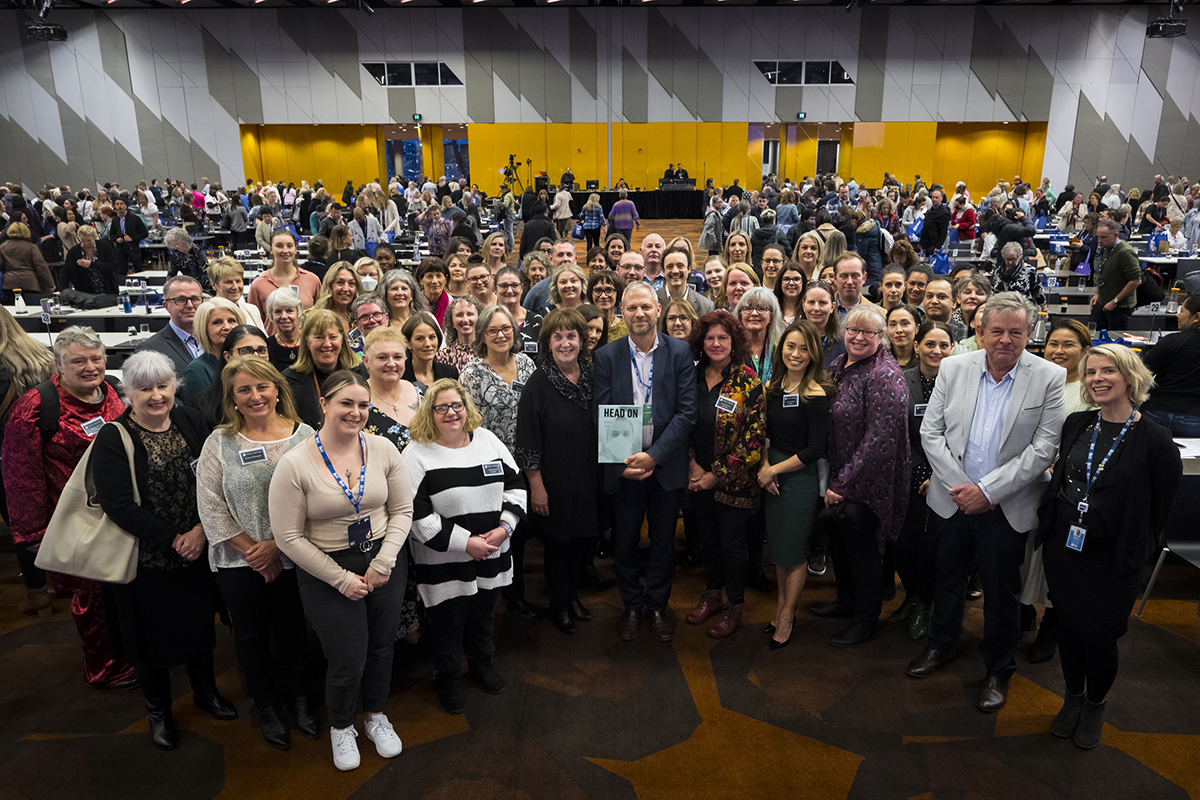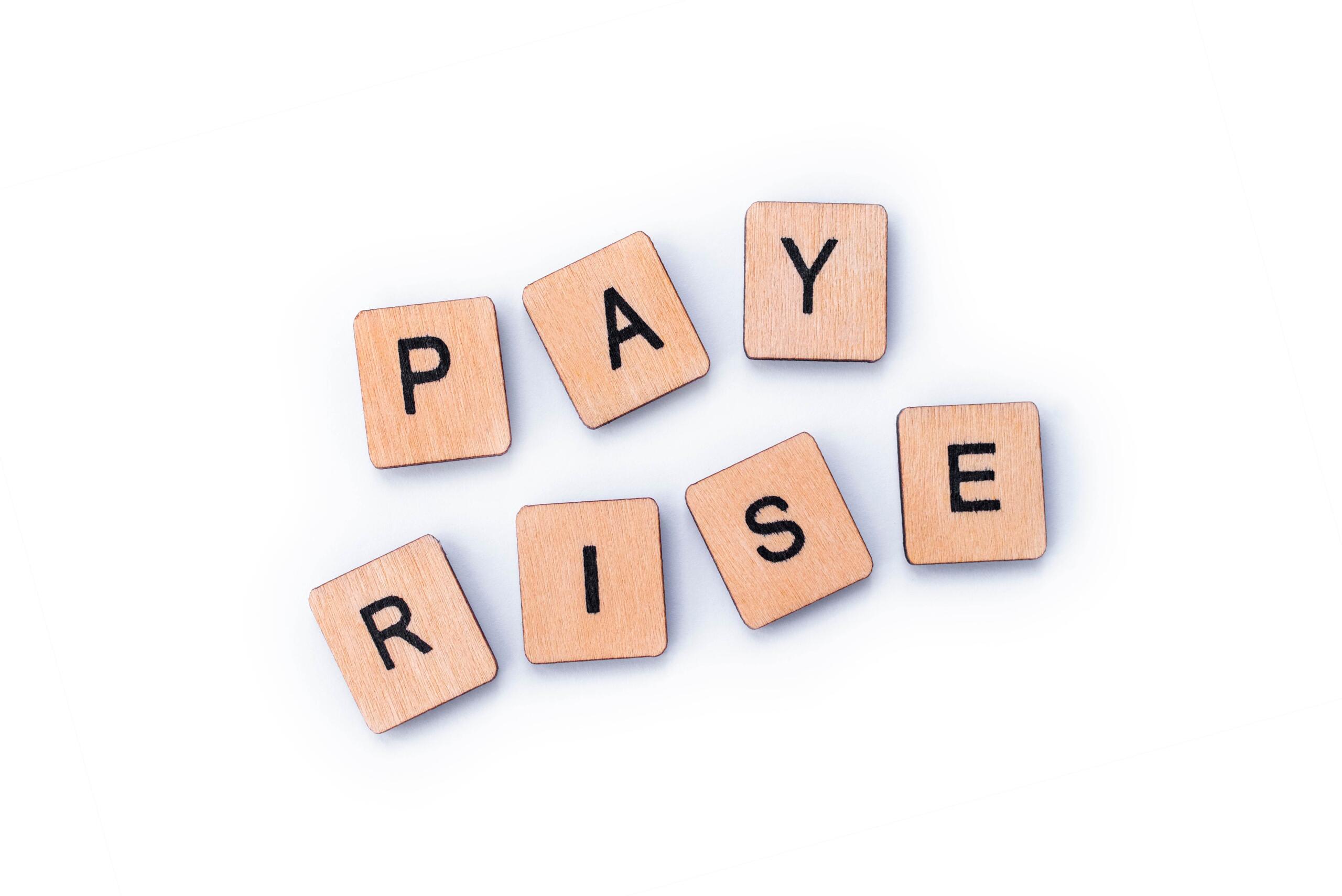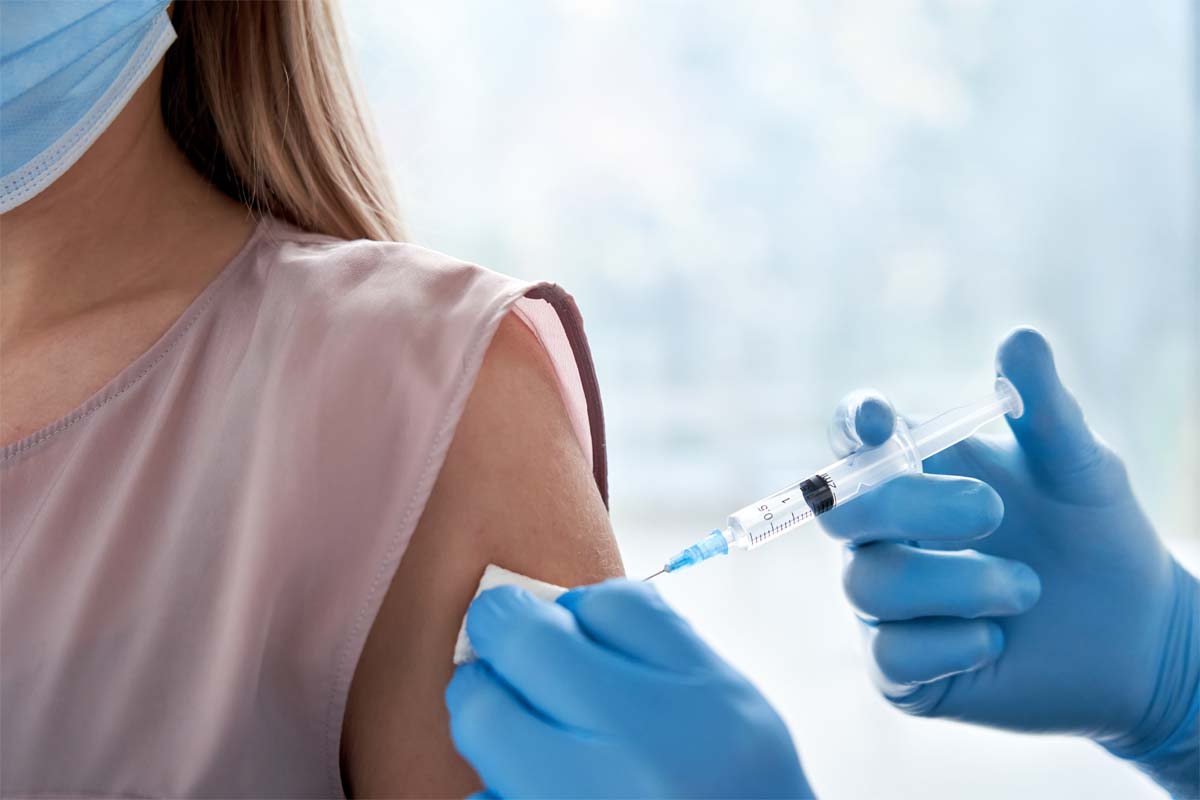
Victorian COVID-19 cases on 25 September: there are 7611 active cases, including 847 new locally acquired cases. Another person has died. Today’s hospitalisation figures are not yet released – yesterday there were 297 patients in hospital, including 66 in ICU, with 46 on ventilators. Data links are at the end of this newsflash.
COVID-stressed?
Nurses and midwives are resilient and dedicated. But they also have a reputation for battling on when in need of support themselves.
Have a colleague who is not coping? Make sure they know they can access the free, confidential Nursing and Midwifery Health Program Victoria. Encourage them to call. Alternatively, you may like to access the service yourself. One chat may help to reset and decide on some healthy strategies, or you may need ongoing support.
The NMHPV is staffed predominantly by mental health nurses, as well as nurses and midwives with counselling training. They understand your work.
Not ready to call? Reflect on your circumstances and wellbeing and fill out the NMHPV’s self-care plan questionnaire . You will be emailed a self-care plan.
NMHPV CEO and registered nurse Glenn Taylor says if you’re too tired to ask for support it sometimes feels easier to muddle through yourself, but this strategy has its limitations. Glenn provides some timely advice in this Q and A article.
Contact NMHPV on 9415 7551 or email admin@nmhp.org.au.
Aged care workforce leads the way
The residential aged care workforce has risen to the challenge of required vaccination recommended by ATAGI, announced by national cabinet, and supported through individual state and territory Chief Health Officer directives.
As of Thursday 23 September 2021, 98.9 per cent of residential aged care workers across Australia had thus far received their first dose of a COVID-19 vaccine. Almost 83 per cent are fully vaccinated. This outstanding achievement has been noted as ‘one of the highest rates in the world’.
Under the Victorian CHO directive, aged care workers were required to have their first COVID vaccination dose by 17 September and if not, then evidence of first dose booking by 1 October and both doses by 15 November.
Aged care workers unable to be vaccinated due to medical issues are required to provide evidence to their employer from an authorised medical practitioner. This evidence must be from one of the following:
- a general practice registrar on an approved 3GA training placement
- a public health physician
- an infectious disease physician
- a clinical immunologist
- a gynaecologist
- an obstetrician
- a GP who is vocationally registered
- a GP who is a fellow of the Royal Australian College of General Practitioners
- a GP who is a fellow of the Australian College of Rural and Remote Medicine.
Your GP will be able to advise you if they meet one of the above criteria.
All other healthcare workers required to have at least first vaccine dose by mid-October
All Victorian healthcare workers, including nurses and midwives, will be required to have at least their first vaccine dose by on or about 15 October or provide their employer evidence of an appointment to receive a first dose by the end of October 2021. The requirement was announced as part of the Andrews Government’s roadmap to ease restrictions.
ANMF is expecting the Victorian Chief Health Officer to issue a directive, similar to the one for aged care workers, that will confirm the dates and give legal effect to the healthcare worker vaccination requirement. ANMF will be able provide further detail shortly after the CHO directive is issued.
ANMF is aware employers are starting to implement required COVID-19 vaccination policies as they work towards full vaccination of staff.
A number of unfair dismissal cases have been taken to the Fair Work Commission where employees have been dismissed for not being vaccinated. The FWC has found employers’ vaccination requirement of their employees was a reasonable direction. This is particularly so where the employee could be vaccinated but has chosen not to and the employer has no redeployment opportunities.
ANMF nationally strongly encourages vaccination (read the Federal ANMF COVID-19 vaccination position ), which is effective and reduces your chance of hospitalisation, severe illness and death. We thank the many members who have participated in our ‘I’m vaccinated because…’ campaign.
Public sector nurses and midwives have access to half a day’s paid leave (though many employers have provided vaccination opportunities at their workplaces and through in-reach programs) to have your vaccination. Up to four days special leave are available if symptoms after receiving your vaccine prevent you from attending work. The public sector enterprise agreement personal leave evidence requirements apply.
Casual private aged care nurses and personal care workers can access, through your employer, an $80 payment per vaccination dose. Casual staff who become unwell after vaccination, and do not have other leave entitlements, can access one day’s paid leave (at a rate of $185).
To access a reserved Pfizer appointment, call the Victorian Government Coronavirus Hotline on 1800 675 398 and tell the hotline operator you are a healthcare worker. Household contacts of healthcare workers can also access reserved appointments.
More information about eligibility for reserved vaccination appointments is available on the Victorian Government’s website.
Federal ANMF COVID-19 vaccination position
Nurses, midwives and aged care personal care workers work with vulnerable patients, clients and residents. Required immunisation is reasonable in these settings and part of a range of infection control measures.
ANMF supports required immunisation against COVID-19 for nurses, midwives and personal care workers, unless there is a medical exemption, to protect yourself, your colleagues, your family, your patients and the community.
For the same reasons, ANMF is advocating that there should also be a vaccination requirement of visitors to aged and healthcare services.
Read the Federal ANMF COVID-19 vaccination position.
Science of vaccines webinar
ANMF encourages all members to be informed about COVID-19 vaccines. The fast-moving pace of COVID-19 science both from disease progression and treatments has been hard to keep up with. Nurses and midwives are well-positioned to advocate for science and safety.
In a webinar hosted by Federal ANMF on 26 August 2021, Dr Jessica Stokes-Parish (RN, PhD) and nurse immuniser Romy Blacklaw presented the safety processes, research, surveillance of adverse events (including data on safety so far) and the difference between COVID-19 vaccines.
Members can view the ‘Vaccine science in the context of COVID-19’ webinar (1 hour CPD) via the ANMF (Vic Branch) CPD Portal.
Updated PPE guidance for all birthing services
The Department of Health has updated its COVID PEAK risk rating (black) PPE guidance for all birthing environments across Victoria:
- All staff providing direct care to COVID negative and/or patients who are not suspected of COVID-19 to wear a P2/N95 and eye protection (face shield preferably) as a minimum. Additional PPE to be worn as required, based on local risk assessment.
- All staff providing care and/or exposed to SCOVID and confirmed COVID to wear tier 3 PPE.
Maternal and child health guidance updated
As of 11.59pm Wednesday 22 September the following changes apply:
Regional maternal and child health services (except for Geelong, Surf Coast and Mitchell Shire) no longer require authorised worker permits. These services follow COVID PEAK (black) risk rating guidance which now advises standard length face-to-face appointments for all infants and children. Face-to-face support groups with limits can resume.
Metropolitan Melbourne, Geelong, Surf Coast and Michell Shire are following COVID PEAK (black) risk rating guidance which advises standard length face-to-face services for infants 0-8 weeks at each key age and stage visit, and for Aboriginal infants and children and those with additional needs.
For all key age and stage visits from four months, provide tele- or web-based consultations in combination with short face-to-face to attend physical and developmental assessments.
Youngest infants should be prioritised if workforce capacity is compromised due to furloughing, increased workload, or workforce shortage.
PPE supply
As at 23 September 2021, the Department of Health advises there were: 10 million N95 respirator masks, 38 million surgical masks, five million visors, five million safety glasses, 9 million isolation gowns and 206 million gloves. The report is available on the department’s PPE information page.
Elective surgery halved at private hospitals and paused at COVID-streaming hospitals
The Department of Health has issued directions for metropolitan private hospitals and day procedure units to reduce non-urgent elective surgery by 50 per cent. This excludes activity undertaken on behalf of public health services and emergency surgery.
Public health services operating as COVID-streaming services are to free their capacity to respond to COVID hospitalisations by postponing non-elective surgery (including 2B and 3 patients and non-urgent non ESIS procedures). Category 1 and 2A continue. High priority public patients, including non-urgent public patients who are beyond the clinical recommended time for elective surgery, should be referred to private hospitals.
This includes: Alfred Health, Northern Health, Austin Health, Monash Health, Royal Melbourne Hospital, Western Health and Eastern Health. It will also include other major metropolitan public health services as they become COVID-streaming hospitals.
Private hospitals and day procedure centres in Geelong will be requested to scale back elective surgery as COVID hospitalisations increase at Barwon Health’s University Hospital Geelong which is a COVID streaming public hospital.
Public hospitals not currently operating as a COVID-streaming hospital can make local decisions to reduce elective surgery if necessary to respond to challenges associated with the pandemic. In this case, category 2B and 3 should be scaled back in the first instance.
All elective surgery categories continue to be permitted in rural and regional public health services and public hospitals.
Student clinical placements can continue
The Victorian Department of Health advises student clinical placements can continue in COVID-streaming and non-streaming hospitals including wards (acute, sub-acute, maternity and mental health), community settings and public residential aged care facilities.
In advice, updated on 23 September, students in non-streaming hospitals should not provide care/ be exposed to high-risk SCOVID/ confirmed COVID patients. Nor should students in COVID-streaming hospitals be providing care/ be exposed to high-risk/ confirmed COVID patients or be placed in designated COVID streaming areas.
COVID-streaming hospitals can designate specified areas of the emergency department and/ or intensive care unit where student placements may safely proceed. Placement in these areas should only occur for fully vaccinated students who have been fit-tested for N95/P2 respirator PPE by a public health service respiratory protection program and have had correct PPE donning and doffing training.
Students are considered ‘healthcare workers’ under the COVID PEAK response guidance and all obligations apply, including daily attestations.
ANMF condemns city protest violence and calls for calm, respectful dialogue
ANMF issued a strong statement on 21 September 2021 calling for respectful dialogue and condemning the violent city protests.
Protests and riots are jeopardising Victoria’s precious health system and our plan out of lockdown. The chaos is blind to our community’s collective responsibility to keep each other safe.
The chaos was disrespectful of vaccinated nurses, midwives and personal care workers who continue to work every day caring for the community across our hospitals, COVID wards, ICUs, emergency departments, hospital in the home, community health, birthing suites, mental health services, nursing homes and testing and vaccination centres — in the most challenging circumstances.
The accurate reports of nurses being spat at and verbally abused has led to a temporary closure of a small number of vaccination sites. This has also sadly reduced the healthcare services they provide to some our most vulnerable people in Melbourne.
The Branch is working with Victoria Police and healthcare providers to protect our amazing nurses and midwives who are under pressure, working extraordinary hours making such a difference to the lives of those in our in the home programs, hospital wards, emergency departments, intensive care units and mental health units. We are strongly focussed on supporting our members going about their work each and every shift.
Read the full statement ‘Stop the violence, stop fighting for the right to overwhelm our health system’.
Report violence and aggression – report to management, report to ANMF
Recent reports of violence and aggression towards healthcare workers working at vaccination hubs are distressing.
ANMF reminds members to report violence and aggression they experience at their workplace, including vaccination and testing centres, to your management and via VIMS or RiskMan.
ANMF won’t know about your workplace report which is why we also ask you to report any violence and aggression to your union via our online OVA reporting form. This online form is also accessible via our ANMF Diary App.
Members who report to ANMF, receive support and advice and the union can advocate for the implementation of measures in your workplace to prevent and reduce further violence and aggression.
Thank you to the ANMF Health and Safety Reps and Job Reps currently participating in our OVA audit pilot project to understand how employers are implementing our 10 point plan to end violence and aggression: a guide for health services. This important work will measure employers’ implementation of the plan, increase awareness of the plan, and provide real-time data to inform ANMF’s discussions with employers and government.
Room to pause: cautious roadmap will consider hospital and workforce capacity
The Andrews Government’s roadmap to ease lockdown and restrictions will consider hospital capacity and can be paused to prevent COVID patients overwhelming the health system and the workforce.
The roadmap, based on Burnet Institute modelling, is set against COVID-19 thresholds including hospitalisation rates, and the vaccination targets set out in the National Plan to transition Australia’s National COVID-19 Response.
The modelling acknowledged ‘considerable uncertainty’ in future projections and noted ‘easing of restrictions must be done carefully to avoid overwhelming the health system’. It predicts — with schools open throughout October, outdoor activities starting at 70 per cent fully vaccinated and indoor density limits starting at 80 per cent fully vaccinated — 3150 hospitalisations and 2200 deaths (between July and December 2021). The peak is expected in December.
The roadmap includes trigger points to protect the health system from becoming overwhelmed. This will mean the public health team will be able to adjust restrictions if hospital admissions become too high.
Key indicative dates in the roadmap
Indictive date: 26 September 2021 (80% eligible population first dose)
Metro: outdoor recreation activities resume with the same limits as picnics.
Regional: masks can be removed for beauty/hairdressing services, final years VCAL students return to on-site learning.
Indicative date: 5 October 2021
Metro: students return on-site to sit the GAT, from 6 October onsite learning returns for VCE Units 3/4 and final year VCAL and IB students.
Regional: schools continue to be open for VCE Units 3/4, final year VCAL and IB students, Prep and Year 1 and 2 students. Further advice to be provided on 30 September.
Indicative date: 26 October 2021 (at 70% fully vaccinated)
Metro: lockdown will end in Melbourne, reasons to leave home and curfew will no longer be in place, 10 fully vaccinated people can gather outdoors, community sport training returns; pubs, clubs and entertainment venues can open to 50 fully vaccinated people outdoors; all students return to school on-site at least part-time; hairdressing and personal care open to five fully vaccinated people.
Regional: community sport returns indoors with minimum numbers; pubs, clubs and entertainment venues are open indoors to 30 fully vaccinated people; schools return to on-site learning at least part-time; funerals and weddings are allowed for 30 fully vaccinated people indoors and 100 fully vaccinated people outdoors.
Indicative date: 5 November 2021 (80% fully vaccinated)
Regional Victoria and Metro Melbourne come together under the same rules
Social & recreational: up to 10 people (including dependants) are permitted at your home, up to 150 fully vaccinated people can dine indoors, and up to 30 can gather in public outside; indoor community sport open for minimum number required; masks are only required inside; pubs, restaurants and cafes can open for seated service only, up-to 150 fully vaccinated people inside and 500 outdoors.
Work: work from home if you can, but you can go to work if fully vaccinated.
Hairdressing, beauty, personal care: open for fully vaccinated people.
Retail: all retail open.
Education: early childhood education and care is open, all students return to school with additional safety measures in-place, on-site adult education returns for fully vaccinated Victorians.
Religious ceremonies: weddings, funerals, and religious services return for 150 fully vaccinated people indoors and 500 outdoors.
Indicative date: 19 November 2021 (80% – 12+ years – fully vaccinated)
Once 80% of Victorians aged 12 and over are fully vaccinated restrictions will align with the National Plan to transition Australia’s National COVID-19 Response, agreed to by National Cabinet.
Social: by 25 December, 30 visitors to the home
Victorian Government media release ‘Victoria’s roadmap: delivering the national plan’ (19 September 2021)
Burnet Institute modelling
Regional roadmap
Metropolitan roadmap
Simplified regional and metro roadmap
ANMF media release ‘Ball in the court of unvaccinated Victorians’ (19 September 2021)
Victorian Department of Health employment advice
The Victorian Department of Health’s ‘Coronavirus Guidance Note on Employment-Related Matters’ (last updated 22 August 2021)– provides advice on leave, including special paid leave and vaccination leave and re-deployment. ANMF encourages all employers to follow this guidance, however, recognise that enforcement is limited to public sector employers only.
How to access ANMF support
Members are encouraged complete an online Member Assistance inquiry form via (scroll to the bottom of the page).
Personal protective equipment concern?
Members with concerns about PPE should:
- raise and submit OHS incident reports with your employer as well as speaking directly with your manager
- involve your Health and Safety Rep if you have one
- contact ANMF via an online Member Assistance inquiry form (include your report and response if applicable) for further support and advice if after you have raised your concerns they are not addressed by your employer.
Exposure sites
Do you live with a close contact?
If you have a close contact living in your household, you are a secondary contact and must quarantine until they are told they can leave quarantine.
Where can I get tested for COVID-19?
Please get tested even with the slightest of symptoms.
$450 test and isolation payment
The Victorian Government provides a $450 test and isolation payment to workers required to isolate after taking a COVID-19 test who don’t have access to paid leave.
$1500 disaster leave payment
The Federal Government provides a $1500 disaster leave payment if you tested positive or were identified as a close contact and have to isolate for 14 days. Private aged care workers are eligible for the payment if you do not have access to paid leave during your isolation period. Call 180 22 66 to make a claim.
Emergency accommodation for healthcare workers
The Victorian Government provides the ‘frontline accommodation program’ for health care workers if they need support to quarantine or isolate safely. Private aged care nurses and personal care workers are eligible to access this program.
COVID-19 important links for nurses, midwives and personal care workers
ANMF continues to collate the important links all in one place, so you don’t have to go looking. Please bookmark and check this page regularly.
Latest COVID-19 statistics
Victorian COVID-19 data dashboard
Healthcare Worker COVID-19 data dashboard
Victorian Chief Health Officer daily update
Victorian Chief Health Officer daily media release
Victorian Government’s vaccination data dashboard
Federal Government national COVID-19 data
Federal Government’s national and aged care vaccination data
Don’t bring it home: guide to minimise the risk of infection
The ANMF (Vic Branch) ‘Don’t bring it home’ guide is designed to assist members returning home from work after a shift. Job Reps and HSRs are encouraged to download and print the ‘Protocols for entering your home and minimising the risk of infection’ A4 poster [PDF].



